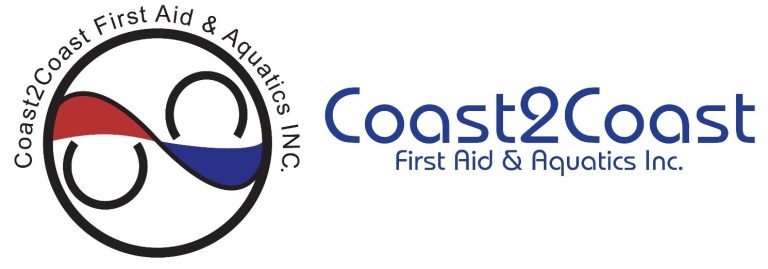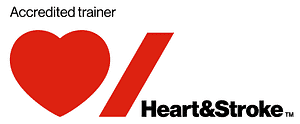Heart and Stroke Basic Life Support (HCP) Courses
Basic Life Support training through the Heart and Stroke are designed for healthcare professionals. These healthcare professionals are typically staff members who work in hospitals or pre-hospital settings. Their job is to provide high-quality CPR in a team environment to patients in need. The goal of this course is to teach students how to provide the best quality CPR to increase survival rates for patients.
Those who enroll in Basic Life Support training will learn a variety of life-saving skills such as recognizing cardiac arrest, how to respond quickly and confidently to an emergency, how to perform single and multi-rescuer team CPR and more!
There are three training levels you may choose from: Basic Life Support, Basic Life Support (Blended) and Basic Life Support Recertification. To learn more about these course types, please look below.
You may also like:
If you do not require certification through Heart and Stroke, you may be interested in a Basic Life Support course through the Canadian Red Cross.
In addition to Basic Life Support training, Canadian Red Cross also offers Airway Management and Oxygen Therapy courses.
If you are interested, click the “Learn More” button below.
Basic Life Support
| Training Level | Basic Life Support |
| All In-Class Training: | 4 hours teaching time 10AM-2PM |
| Course Content: |
|
| Requirements: | 100% attendance of the course 75% score on the multiple choice knowledge test |
| Certification: | Certificate will be issued, valid for 1 year |
At Coast2Coast, we provide Heart and Stroke Basic Life Support training courses for healthcare professionals. This 4-hour, high-intensity training is available throughout the GTA. Click the Register Now button to find a training location near you and gain confidence in your life-saving skills!
Basic Life Support (Blended)
| Training Level | Basic Life Support (Blended) |
| Online + In-Class Training: | Online: 1-2 hours (to be completed in your own time) In-Class: 2 hours 3PM-5PM |
| Course Content: |
|
| Requirements: | 100% attendance of the course 75% score on the multiple choice knowledge test |
| Certification: | Certificate will be issued, valid for 1 year |
Blended training is a great way to earn your Basic Life Support certificate in a flexible and convenient manner. Complete half of your training online prior to attending a 2 hour in-class session. Getting certified in Heart and Stroke Basic Life Support has never been easier!
Basic Life Support Recertification
| Training Level | Basic Life Support Recertification |
| All In-Class Training: | 3 hours teaching time 6PM-9PM |
| Course Content: | Refresher of:
|
| Requirements: | Current Heart and Stroke BLS Provider certification OR Heart and Stroke BLS Renewal Prerequisite Challenge Certificate 100% attendance of the course 75% score on the multiple choice knowledge test |
| Certification: | Certificate will be issued, valid for 1 year |
Have you already completed a Heart and Stroke Basic Life Support training? Now it’s time to recertify! Keep your Basic Life Support certificate up-to-date and register for a Recertification course. Current certificate must be valid.
Click here for a quick, step-by-step registration guide that gets you registered fast and efficiently!
Click here for a thorough and guiding instructional video with audio commentary to get you registered for the right course!
Testimonials!







Emad Ibrahim





Much appreciated







What really stood out was his ability to break down complex concepts into easily digestible bits, making it easy for me to grasp and apply the material. I was amazed at how much I learned, and I’m thrilled to say that I got the best out of the training!
Even though I had no prior knowledge in some areas, he was able to present the material in a way that was fresh and engaging, and I appreciated his patience and willingness to answer all my questions. His bit of puffy and gesture attitude really helped to keep me engaged and motivated throughout the training. Smiling in delight, he asked while I was demonstrating CPR, if I needed coffee or a donut, trying to gauge if I would be distracted. I fell for it deliberately to get my anxiety out
Overall, I highly recommend Coast2Coast and their trainer to anyone looking for a supportive and effective first aid/CPR learning experience. Thank you for a fantastic training experience.





My Ahmed is a very good instructor 🙏❤️❤️

Good course for an individual for work environment or home.













It was very beneficial for my career.






He made learning new life skills with lots of fun and interaction.






You May Also Like:
Advanced Cardiac Life Support (ACLS)
Improve your cardiac life support skills and enroll in an ACLS course. This training is designed for healthcare professionals who provide immediate care to post-cardiac arrest patients. The ACLS course builds off of Basic Life Support (BLS) training and requires students to be proficient in their BLS skills before attending.
Pediatric Advanced Life Support (PALS)
PALS training courses are built off of Basic Life Support (BLS) training. This 14-hour advanced training will teach students how to provide life-saving skills to pediatric patients such as high-quality CPR, cardiopulmonary arrest and more. Practice high-intensity CPR with a small team and save children’s lives.
Pediatric Emergency Assessment, Recognition and Stabilization (PEARS)
PEARS training courses are very similar to Basic Life Support (BLS) courses but focuses on infants and children who suffer from cardiac arrest, respiratory distress and more. Those who complete PEARS training will be involved in initial response to patient needs. Students will learn how to provide life-saving skills necessary to improve patient outcomes.



